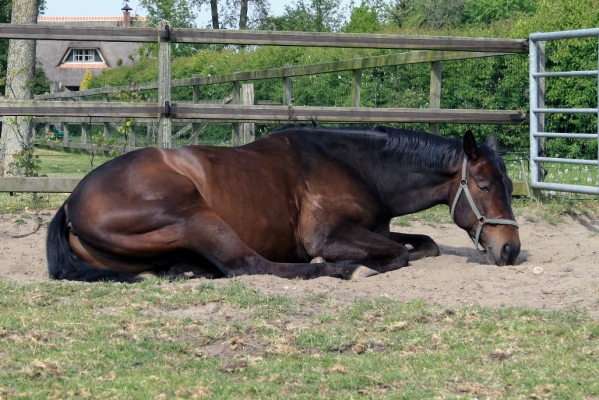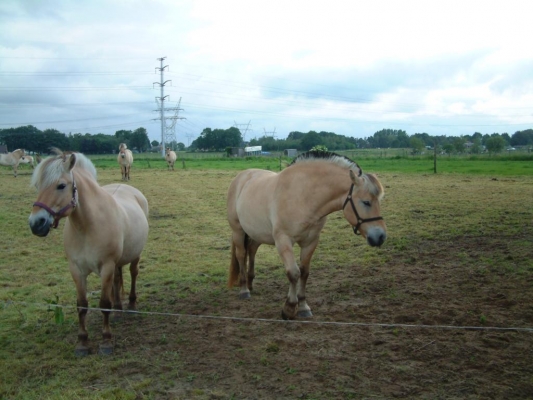Eating sand and manure
Sometimes horses eat sand or manure, and generally there is a reason for that behavior. As soon as you’ve discovered what that reason is, you can find a solution.
Eating sand
Sometimes horses eat sand because they’re bored, or because they don’t get enough hay or grass. In rare cases a horse will eat sand because he has a mineral deficiency, possibly due to a lower immune system or because he is shedding his winter coat. Sometimes the horse eats too much sand because the grass in the pasture is so short that the horse unintentionally eats the roots. Or sometimes the horse imitates the behavior of other horses that are in the same pasture.
What can I do?
You can prevent your horse from eating sand by keeping him off eaten-down pastures. When your horse is out in a dry lot or paddock for a couple of hours during the day, feed him some hay outside. That way he can nibble constantly and he won’t be tempted to eat sand because he’s bored. If your horse gains weight easily, feed stem-rich hay. This way your horse stays occupied and he fills his stomach without getting too much nutrients.
To verify if your horse eats too much sand, you can do a sand-test several times a year.
Dissolve 5 or 6 of his manure balls in a bowl. If you find more than a teaspoon of sand on the bottom of the bowl, there is a big chance that the amount of sand in the intestines of your horse will eventually cause obstruction and colic. In case of doubt, always consult your veterinarian. Adding a special supplement to his daily ration that promotes a proper digestion on a regular basis will create a protective layer in the intestines that prevents the sand from accumulating and improves the removal from the intestines.
Eating manure
Eating manure is normal for foals and has a legitimate function. By eating manure they digest important micro organisms and bacteria that are necessary for a healthy intestinal flora.
When an adult horse eats manure it can have various reasons. Horses often eat manure due to a lack of roughage (there is nothing else to eat) or out of boredom. This is not normal: the reason for this behavior needs to be solved.
What can I do?
Grass, hay or silage is important nourishment for your horse. Make sure that your horse gets sufficient quantities of one or more of these items during the day. Especially if your horse is out in a dry paddock or a close-cropped pasture during the day, it is important to feed extra hay or silage.
If your horse gains weight easily you can give stemmy hay. Stemmy or stalky hay has grown longer and contains less energy and protein. This way your horse gets sufficient diversion and filling, without too much nutrients.




